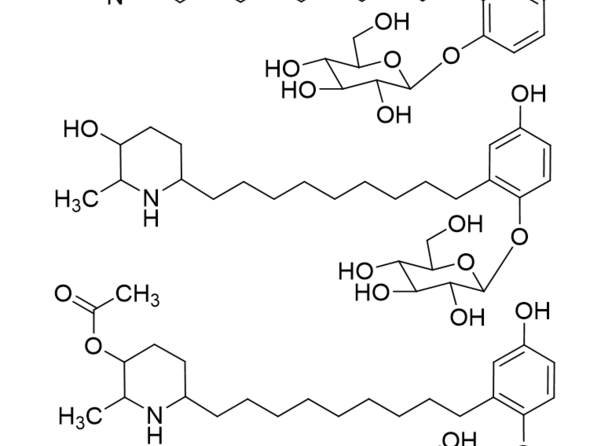Cholinergic activity enhancer - Novel alkaloids as potential drugs to treat Alzheimer´s disease or as lifestyle drugs for neuroenhancement
Ref.-Nr. 5831
Keywords: Bioactive alkaloids, Inhibition of AChE, Novel synthesizable compounds, Natural products from plants, Alzheimer´s disease, Neuroenhancement
Acetylcholine (ACh) is an essential neurotransmitter with a major function in the central and peripheral nervous system. Furthermore, ACh plays a crucial role in the autonomic nervous system stimulating preganglionic parasympathetic and sympathetic nerve fibres and postganglionic parasympathetic neurons. In certain pathophysiological conditions ACh concentrations can be reduced, leading to a huge variety of clinical symptoms. The ACh depletion may originate from reduced ACh synthesis, an alteration of the receptor response, an increased acetylcholin-esterase (AChE) activity and a degeneration of cholinergic neurons in the central nervous system. CAEs represent naturally occurring alkaloids, which indirectly stimulate muscarinic and nicotinic receptors by increasing ACh concentrations by an AChE inhibition.
Since the important role of these receptors in the central nervous system on cognitive function is well known, the AChE is a target of neuroenhancement and for treating diseases with cognitive dysfunction (e.g. Alzheimer´s disease). For instance, galanthamine, donepezil and rivastigmine, which are potent inhibitors of the AChE, are first-line drugs for treating dementia. The pharmacological data of the novel alkaloids was collected using isolated organs of mice within ex vivo experiments and enzyme assays. AChE inhibition was dose-dependent and potentiated smooth muscle contraction similar to galanthamin, that was used for comparison.
Besides the pharmacodynamics, pharmacokinetic properties are of major interest. The glucose moiety of the alkaloids leads to a good solubility in water and might enhance the absorption of the compounds in the gastrointestinal tract. In addition, acetylated derivatives with increased lipo-philicity for better barrier penetration are available, which may serve as prodrugs.
A great advantage is that the alkaloids can be regarded as non-toxic. Based on a toxicological in vitro assessment including different cell lines (human liver cells, human keratinocytes, epithelial intestinal cells) the compounds do not influence proliferation over a wide concentration range (1 to 100 μM). This is of high significance, since hepatoxicity can be a limiting factor for AChE inhibitors, as it is for tacrine, the prototype of AChE inhibitors. Due to the AChE inhibition an administration of the innovative alkaloids might have beneficial effects on Alzheimer´s disease or function as neuroenhancers in states of cognitive dysfunction. Besides, there are further promising indication areas for the novel alkaloids. Peripheral cholinergic effects on muscle cells could be advantageous for treating Myasthenia gravis or hypotonic bladder.
The piperidine- and dihydropyrrole-alkaloids can be synthesized or isolated from plant material. In addition, it is possible to administrate the alkaloids as plant extracts with enriched and standardized amounts of the alkaloids, which could be an optimal alternative for patients with a high demand for natural and sustainable products.
Vorteile
- Bioactive alkaloids
- Neuroenhancement
- Inhibition of AChE
- Natural products from plants
- Novel synthesizable compounds
- Useable also as standardized plant extract
Kommerzielle Anwendung
On behalf of the University of Münster, PROvendis is offering this opportunity for licensing or co-development to interested companies.
Aktueller Stand
For the innovative alkaloids in vitro and ex vivo data are available. In case of interest, we are pleased to inform you about the patent status.
—
Eine Erfindung der Universität Münster.



